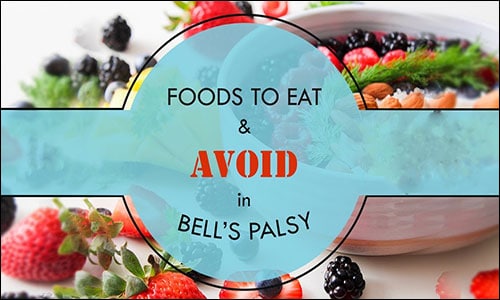Bell’s Palsy Diet: A Comprehensive Guide to Promote Healing
Bell’s Palsy is a condition that affects the facial muscles, causing temporary weakness or paralysis. While the exact cause is unknown, it is believed to be linked to viral infections, especially those that affect the facial nerve. Although the condition generally resolves on its own within a few weeks or months, a healthy diet can play a crucial role in promoting healing and reducing inflammation. In this article, we will explore the Bell’s Palsy diet and discuss the foods that can aid in recovery.
The Importance of a Balanced Diet
Maintaining a balanced diet is essential for overall health, and it becomes even more critical when dealing with a condition like Bell’s Palsy. A well-rounded diet can help boost the immune system and provide essential nutrients to support nerve regeneration and repair. Here are some key components to consider when planning your Bell’s Palsy diet:
1. Anti-Inflammatory Foods
Inflammation is a common occurrence during Bell’s Palsy, and consuming anti-inflammatory foods can help reduce the severity and duration of symptoms. Including foods such as fatty fish (salmon, mackerel, and sardines), nuts, seeds, olive oil, and leafy green vegetables can contribute to overall inflammation reduction. These foods are rich in omega-3 fatty acids, which have been shown to have anti-inflammatory properties.
2. Vitamin B12
Maintaining optimal levels of vitamin B12 is crucial for nerve health and function. Including foods rich in vitamin B12, such as meat, fish, eggs, and dairy products, can promote nerve regeneration and repair. If you follow a plant-based diet, you may consider incorporating fortified plant-based milk, nutritional yeast, or B12 supplements to meet your dietary needs.
3. Vitamin C
Vitamin C is well-known for its immune-boosting properties and ability to promote healing. It is essential in collagen synthesis, which is crucial for the health of connective tissues, including facial nerves. Citrus fruits, berries, kiwi, and leafy greens are abundant sources of vitamin C that should be included in your diet to aid in the healing process.
4. Zinc
Zinc is a mineral that plays a significant role in immune function and wound healing. Including zinc-rich foods like oysters, beef, legumes, nuts, and seeds can help support the recovery process. However, it’s important not to exceed the recommended daily intake of zinc, as excessive amounts can have adverse effects on the body.
5. Magnesium
Magnesium is involved in various nerve functions and muscle contractions, making it an essential mineral for Bell’s Palsy patients. Incorporating magnesium-rich foods, such as leafy greens, whole grains, nuts, and seeds, can help support nerve health and aid in the recovery process.
6. Foods Rich in B Vitamins
B vitamins, including thiamine (B1), riboflavin (B2), niacin (B3), pyridoxine (B6), and folate (B9), are vital for nervous system function and overall well-being. Whole grains, legumes, nuts, seeds, dark leafy greens, and animal products are excellent sources of B vitamins and should be included in your Bell’s Palsy diet.
7. Hydration
Staying adequately hydrated is crucial for overall health and promoting healing. Drinking enough water throughout the day can help flush out toxins, support proper nerve function, and maintain overall well-being. Aim to consume at least 8 glasses of water daily, and adjust your intake based on your activity level and body’s hydration needs.
8. Limit Salt and Sugar
Excessive salt intake can lead to water retention, which may worsen facial swelling and inflammation during Bell’s Palsy. Limit your consumption of processed and packaged foods, as they are often high in sodium. Similarly, reducing your sugar intake can aid in maintaining steady blood sugar levels and avoiding unnecessary inflammation.
Conclusion
While there is no specific diet that can cure Bell’s Palsy, maintaining a healthy and balanced diet can contribute to the overall healing process. Including anti-inflammatory foods, vitamins, minerals, and staying well-hydrated are crucial factors to consider. Always consult with a healthcare professional or registered dietitian to create a personalized Bell’s Palsy diet plan that suits your unique needs and dietary preferences. Remember, patience and consistency are key as you embark on your journey to recovery.







